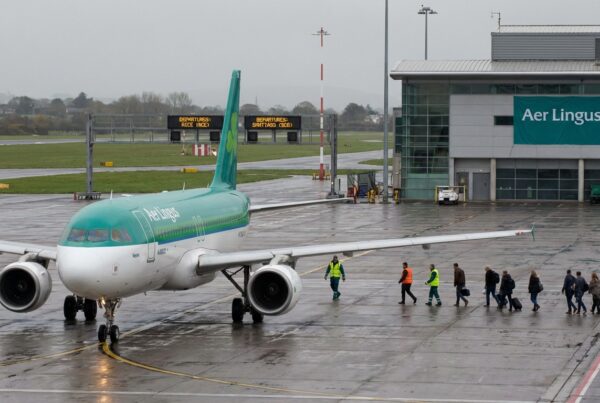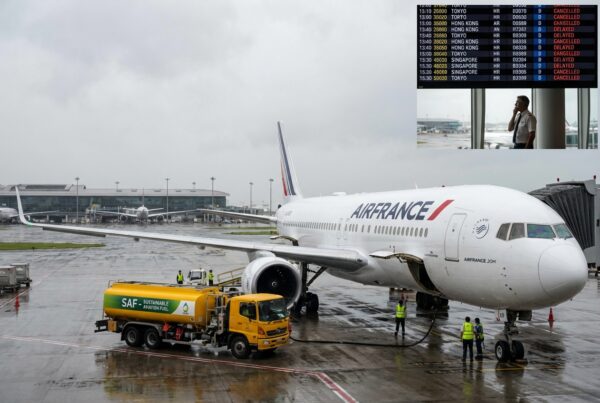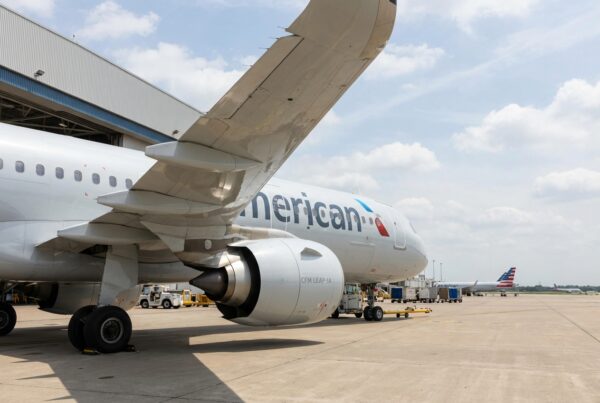Faced with an uncertain economic context, Delta Air Lines sees the benefits for domestic travel drop significantly. Visit economic concerns are prompting consumers to rethink their priorities, limiting non-essential travel. The airline, historically renowned for the quality of its services, is seeking to adapt by proposing attractive offers adapted to today's budget constraints. Despite its expertise and extensive national network, travelers' optimism remains dampened by a climate of caution. This observation underlines a transformation in consumer habits, with lasting effects on the domestic aviation sector. The current challenges are having a profound effect on the market.
In the current context, Delta Air Lines is experiencing a marked slowdown in interest in domestic travel. Recent unfavorable economic conditions and continuing uncertainty in the aviation market have led to a drop in demand, prompting the company to revise its financial forecasts. This situation contrasts with initiatives elsewhere in the sector, for example when France opted for an increase in the solidarity tax on airline ticketswhich is putting further pressure on airline revenues.
Review of financial forecasts and strategic adjustments
Visit economic concerns of today Delta Air Lines to adjust its forecasts for the first quarter, as indicated by the company's recent statements. This readjustment is due to a drop in demand for domestic routes, a once highly profitable segment. To understand this phenomenon, we can compare with other major players in the field. These include Vietnam Airlines was able to take advantage of a favorable context to post remarkable results, underlining the disparity of situations encountered in different markets.
Impact on sales strategy and consumer behavior
Changes to financial forecasts at Delta Air Lines is symptomatic of the profound changes in consumer behavior. As some travelers turn to flexible offers and competitive fares in the face of economic uncertainty, demand for domestic travel has been particularly sensitive. This uncertain climate is also prompting airlines to rethink their commercial strategies. In the same vein, Delta Air Lines adjusts its financial forecasts to adapt to market changes and remain competitive.
Comparison with other aviation giants
At the same time, some companies are competing by rapidly adapting their offers. Here are just a few examples, American Airlines recently resumed flights after a significant interruption in service, showing that resilience can often be a major asset in a difficult environment. Likewise, some European airlines are considering reducing the number of flights in the winter period due to regulatory constraints and limited passenger numbers, a strategy reflected in the projections of Dublin-based airlines.
The importance of economic factors in strategic decision-making is becoming increasingly apparent throughout the aviation industry. Airlines, whether operating in domestic or international markets, must continually re-evaluate their pricing structures and marketing strategies to remain attractive. The situation of Delta Air Lines is just one example in a fast-changing sector where balancing costs, revenues and customer satisfaction remains a constant challenge.
Analysis of the Economic Impact on Domestic Travel
| Economic aspect | Financial concerns influence demand for domestic trips. |
| Price sensitivity | Consumers prefer competitive offers in the face of rising costs. |
| Adapting the offer | The company is adjusting its services to maintain its appeal in the domestic market. |
| Flight frequencies | There has been a marked decline in passenger numbers on domestic routes. |
| Sales strategy | Launches targeted promotions to revive interest despite a tense economic context. |
| Home network | Revision of flight frequencies to better meet new market expectations. |
| Financial outlook | Results from domestic operations remain closely linked to economic conditions. |




